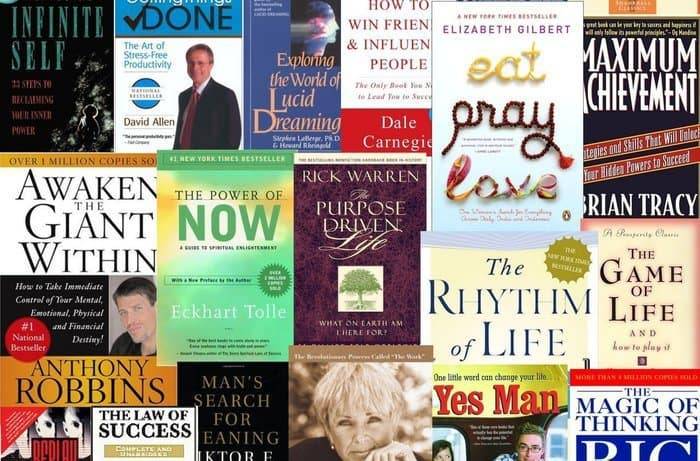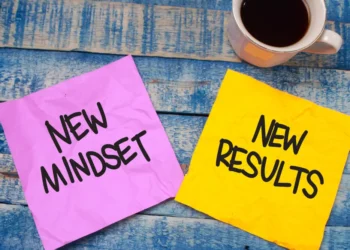“The secret of getting ahead is getting started.” – Mark Twain
Success is not just luck. It comes from daily habits. People like Steve Jobs and Oprah Winfrey say their routines helped them succeed.
They wake up early, learn every day, and stay focused. Success is a journey, not a goal. It takes 66 days for new habits to stick, showing the power of consistent effort.
Key Takeaways
- Success is built on daily habits practiced by high achievers.
- Consistency is key in developing success-oriented routines and mindsets.
- Continuous learning and applying newfound knowledge are vital for personal and professional growth.
- Effective time management and self-discipline are foundational for achieving long-term goals.
- Surrounding oneself with positive, like-minded individuals can significantly impact one’s success trajectory.
Understanding the Power of Success Programming
Achieving great success is not just luck. It’s a smart process based on how habits form and brain connections work. By learning about these, you can change your habits to reach your highest potential.
The Science Behind Habit Formation
Habit formation is a cool process that happens in our brains. When we do something over and over, our brain’s paths get stronger. This makes it easier to do that thing again. Our brain’s ability to change and make new connections is key to forming habits.
How Neural Pathways Shape Success
When you keep doing habits that help you reach your goals, those brain paths get even stronger. This makes those good habits automatic and changes how you think and make decisions. By shaping your brain’s paths, you can set yourself up for lasting success.
The 66-Day Rule for Habit Development
Studies show it takes about 66 days for a new habit to become second nature. This 66-day rule shows how important sticking with it is. By sticking to your habits for 66 days, you can change your brain and make big progress.

“The chains of habit are too weak to be felt until they are too strong to be broken.” – Samuel Johnson
Knowing how habits and brain connections work is a powerful tool for success. By using this knowledge, you can change your habits, rewire your mind, and reach your highest goals.
The Foundation of Keystone Habits
“Keystone habits” is a term coined by journalist Charles Duhigg. It refers to small changes that can lead to big positive changes in your life. These habits, like regular exercise or journaling, have a big impact on your thoughts, actions, and feelings. They can greatly improve your physical, mental, and emotional health.
Starting a new keystone habit can lead to many positive changes in your daily life. For example, exercising regularly can improve your physical health and boost your energy. It can also help you sleep better and reduce stress and anxiety. Journaling can help you reflect on your thoughts, set goals, and process your emotions. This can increase your self-awareness and improve your decision-making skills.
Keystone habits require commitment and self-discipline, which can positively affect other areas of your life. As you develop these skills, you’ll find them helping you in time management, productivity, and relationships. This is because the habits you build in one area can spill over into others.
By choosing and working on keystone habits, you can create a chain of positive changes. These habits, like daily meditation, a consistent sleep schedule, or cooking at home, can unlock your full potential. They can help you reach your personal development goals in meaningful ways.
| Keystone Habit | Benefits |
|---|---|
| Exercise | Improved physical health, mental well-being, stress reduction, better sleep |
| Journaling | Enhanced self-awareness, emotional processing, goal setting, and decision-making |
| Meditation | Reduced anxiety and stress, improved focus, emotional resilience, and interpersonal relationships |
| Consistent Sleep Schedule | Increased energy, focus, creativity, and willpower |
Embracing keystone habits is a powerful way to unlock your full potential and drive lasting change. By focusing on these foundational behaviors, you can start a ripple effect of personal growth. This growth will continue to positively impact your life for years to come.

“Keystone habits have a disproportionate impact on other areas of life, affecting how we think, act, and feel.”
Daily Success Habits That Program Your Mind for Achievement
Reaching your goals is not just about talent or luck. It’s about building daily success habits that change your mindset. These habits help you take action every day. Self-discipline, changing your mindset, and success rituals are key.
The Role of Self-Discipline
Self-discipline is the base of lasting success. It means choosing long-term goals over quick wins. It keeps you focused on your habits and routines.
People who succeed see self-discipline as a skill to improve. It boosts your willpower, focus, and ability to bounce back.
Mindset Transformation Techniques
Changing your mindset can unlock your full potential. Using positive affirmations and visualization can change how you see things. It helps you believe in your dreams.
These techniques change your brain’s paths. They prepare your subconscious for success.
Building Success Rituals
Successful people know the value of daily rituals. Adding routines like morning habits, setting goals, and learning new things helps. These rituals make positive actions a part of your life.
“The secret of your success is determined by your daily routine.” – John C. Maxwell
Start using daily success habits to change your life. By improving self-discipline, changing your mindset, and creating success rituals, you’re ready for great things. You’ll live a life full of success and happiness.
Mastering Your Morning Routine
Starting your day with a purposeful routine can lead to success. Many high achievers wake up early to meditate, practice gratitude, and exercise. Apple’s Steve Jobs and Starbucks’ Howard Schultz were known for their early starts.
A good morning routine boosts focus, productivity, and well-being. It helps you stay on track all day.
Research shows the benefits of a consistent morning productivity routine. Waking up at the same time every day can improve your health. Reading to children in the morning can also help their literacy skills later on.
Quality time with loved ones in the morning strengthens your bond. This can make your day better.
To improve your early rising and mindful mornings, try these tips:
- Avoid phones for the first hour after waking to avoid addiction.
- Do yoga or deep breathing to improve blood flow and digestion.
- Make your bed to start the day right.
- Get 20 minutes of morning sunlight for Vitamin D.
- Eat a healthy breakfast to stay alert.
- Do three tasks in a row to focus and start strong.
Creating a consistent morning routine can change your life. By focusing on well-being and productivity in the morning, you set yourself up for success.
“Changing your morning habits can lead to transformative personal development and overall success in life.”
– Hal Elrod, author of The Miracle Morning
| Habit | Benefit |
|---|---|
| Avoiding phone usage in the morning | Prevents dependence on dopamine-inducing activities |
| Practicing yoga or deep breathing | Increases blood flow, calms the nervous system, and improves digestion |
| Making your bed intentionally | Sets the right mindset for the day |
| Spending time in the morning sunshine | Boosts Vitamin D intake |
| Enjoying a healthy, carbohydrate-based breakfast | Maintains alertness |
| Intentionally completing three tasks in a specific order | Reduces distractions and kickstarts the day |
Consistency is key to a great morning productivity routine. Stick to your early rising and mindful mornings plan. You’ll have a day filled with focus, productivity, and joy.
Strategic Goal Setting and Vision Creation
Setting goals is key to success. Top performers have clear visions and set SMART goals (Specific, Measurable, Achievable, Relevant, Time-bound). They track progress with tools like apps or journals to stay focused and motivated.
By setting goals strategically, daily actions align with long-term dreams.
Long-term Vision Development
Bill Walsh, a three-time Super Bowl winner, said “The score takes care of itself.” He stressed the need for constant improvement over focusing solely on goals. Olympians, politicians, and cyclists all aim to win, showing success comes from systems, not just goals.
SMART Goal Implementation
Reaching a goal brings temporary change, but systems are needed for lasting progress. Goals can lead to a “yo-yo” effect, where old habits return after achieving them. This shows systems, not goals, are key for lasting success.
Progress Tracking Methods
A study found people are 42% more likely to hit their goals if they write them down. Another study showed setting specific, challenging goals boosts performance 90% of the time.
“The score takes care of itself.” – Bill Walsh, Three-time Super Bowl winner
| Metric | Value |
|---|---|
| Increased Goal Achievement by Documenting | 42% |
| Increased Performance with Specific, Challenging Goals | 90% |
Mindfulness and Mental Programming Practices
Unlock your subconscious mind with mindfulness and mental programming. These methods help you focus, manage stress, and change your thoughts for success.
Embrace Mindfulness
Meditation and journaling deeply impact your mental health. They help you stay present and understand your thoughts and feelings. This way, you become more aware and emotionally smart.
Regular mindfulness boosts your decision-making and resilience. It also makes you more positive.
Leverage Mental Programming
Positive affirmations and visualization change your subconscious mind. They help you think and believe in success. This approach helps you overcome doubts and reach your full potential.
| Mindfulness Techniques | Mental Programming Practices |
|---|---|
|
|
Adding mindfulness and mental programming to your daily life changes everything. With regular practice, you’ll become more focused, resilient, and ready for success.
“The mind is everything. What you think, you become.” – Buddha
Physical Wellness for Mental Achievement
Success comes from taking care of your body and mind. It’s important to see how these two are connected. This connection is key to reaching your full potential.
Exercise as a Brain Booster
Exercise is great for your body and mind. It makes you smarter, happier, and less stressed. Try different exercises to stay sharp and focused.
Nutrition for Mental Clarity
Your diet affects your brain health. Eating well improves your memory and focus. Choose whole foods like fruits, veggies, and lean proteins to fuel your brain.
Sleep Optimization Strategies
Good sleep is crucial for your mind. Stick to a sleep schedule and relax before bed. Aim for 7-9 hours of sleep each night.
Focus on exercise, nutrition, and sleep to boost your mental clarity. Taking care of your body helps your mind work better. This will help you succeed in all areas of life.
| Benefit | Impact on Physical Health | Impact on Mental Performance |
|---|---|---|
| Regular Exercise | Improved cardiovascular health, increased muscle strength, and better weight management | Enhanced cognitive function, reduced stress and anxiety, and elevated mood |
| Balanced Nutrition | Optimal nutrient intake for organ function and immune system support | Improved memory, concentration, and decision-making abilities |
| Quality Sleep | Proper rest and recovery for muscles and tissues | Improved focus, productivity, and emotional regulation |
“The greatest weapon against stress is our ability to choose one thought over another.” – William James
Time Management and Productivity Systems
Effective time management is key in today’s fast world. High achievers use time blocking, the Eisenhower Matrix for task prioritization, and systems like Getting Things Done (GTD). These productivity techniques help focus, reduce decision fatigue, and complete important tasks efficiently. By using these methods, you can reach your full potential and achieve great things.
Understanding your productivity patterns is crucial. Keeping a time management log for a week or two can show you where you waste time and when you’re most productive. Then, you can time block your day, focusing on the most important tasks first.
The Eisenhower Matrix is also a great tool for task prioritization. It sorts tasks into four quadrants based on urgency and importance. This makes it easy to know which tasks to do first, delegate, or skip. It keeps your focus sharp and ensures you’re working on the most important tasks.
| Urgent and Important | Important, Not Urgent |
|---|---|
| – Deadline-driven projects – Crisis management – Critical meetings |
– Strategic planning – Professional development – Relationship building |
| Urgent, Not Important | Not Urgent, Not Important |
| – Interruptions – Emails – Unnecessary meetings |
– Social media scrolling – Unimportant tasks – Trivial distractions |
Mastering these time management and productivity techniques will help you achieve your goals. The important thing is to keep improving, trying new methods, and finding what works best for you.
“Time management is not about getting more things done, it’s about getting the right things done.”
Conclusion
Building daily success habits is a strong way to prepare your mind for success. By learning about habit formation, starting with key habits, and sticking to routines, you can change your mindset and actions. Success needs dedication, self-control, and a drive to keep getting better.
By taking on these habits, you start a path to amazing achievements. It could be waking up early, being mindful, or using productivity tools. The small, good changes you make daily can lead to big results over time. Success comes from doing the same things well every day.
Use the power of habits to grow and reach your goals. Focus, discipline, and a readiness to try new things can unlock your full potential. You can achieve the success you’ve always wanted.
FAQ
What are the key daily success habits practiced by high achievers?
High achievers start their day early. They do activities like meditation and exercise in the morning. They also read to learn and set goals.
They manage their time well. This helps them stay focused and productive.
How does the science of habit formation influence success?
Habit formation is based on neuroscience. Neural pathways get stronger with repetition. It takes about 66 days for a new habit to become automatic.
This shows the importance of sticking to habits for success.
What are keystone habits, and how do they impact personal development?
Keystone habits are key behaviors that lead to positive changes. For example, regular exercise can improve many areas of life. They create a chain of positive changes.
What role does self-discipline play in maintaining consistent habits?
Self-discipline is key for keeping up with habits. Techniques like positive affirmations help build self-discipline. They make it easier to stick to success habits.
How can a purposeful morning routine contribute to overall success?
A morning routine can boost focus and productivity. It improves overall well-being. Many successful people, like Steve Jobs, started their day with meditation and exercise.
What are the key elements of effective goal setting?
Successful people set clear, long-term goals. They break these down into SMART goals. Regular tracking helps stay focused and motivated.
This aligns daily actions with long-term goals.
How do mindfulness practices benefit high achievers?
Mindfulness, like meditation, helps manage stress and improve focus. It also enhances decision-making. Positive affirmations and visualization reinforce success thinking.
What is the connection between physical wellness and mental performance?
Exercise boosts brain function and mood. Good nutrition is key for mental clarity. Sleep is also crucial for cognitive function and well-being.
What are some effective time management strategies used by high achievers?
Successful people use time blocking and the Eisenhower Matrix. These help focus and reduce stress. They ensure important tasks are done efficiently.




























































